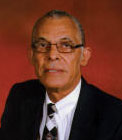August 23, 2008
|
Valerie Reynolds, Senior Pastor, Mt. Hope UB, Carson City, Mich.
Last week I spent some time with John and Valerie Reynolds in Carson City, Mich., where Valerie is pastor of the Mount Hope UB. She showed me an article she wrote for the local newspaper. I liked it and wanted to share it here.– Ron Ramsey
What’s happening to church today? Part of the problem is that we misunderstand the nature of the church. Our language is a dead give-away. We talk about “going to church,” the same way we talk about going to the store, going to the mall, or going to Wal-Mart.
We think of the church as a place we visit–and leave–rather than the reality that we should be living “church” every day. The early Christians, however, didn’t talk about “going to church.” They talked about being the church.
Acts 2: 42-27 is an example of “being the church.”
“They committed themselves to the teaching of the apostles, the life together, the common meal, and the prayers. Everyone around was in awe–all those wonders and signs done through the apostles! And all the believers lived in a wonderful harmony, holding everything in common. They sold whatever they owned and pooled their resources so that each person’s need was met. They followed a daily discipline of worship in the Temple, followed by meals at home, every meal a celebration, exuberant and joyful, as they praised God. People in general liked what they saw. Every day their number grew as God added those who were saved.”
After Peter’s sermon, “there were added about 3000 who became believers.” And it happened because the people were not just going to church, but they were being church. They lived it. They did these things “day by day.” These early believers were still rubbing shoulders with people in their community. They didn’t sever all relationships with unbelievers–and neither should we.
Every day we should be rubbing shoulders with neighbors, coworkers, friends, family, clerks at stores and gas stations. The early church grew because they tried to meet needs outside of the church as well as within it.
They didn’t come to church to sit in a pew. They came to church to learn, fellowship, share meals, and then go out and impact their world.
As mature, growing, or new believers, we need to remember that our conversion is not the end of the story. It is only the beginning. Be the church.

 I sent a note to Owen Gordon (right), UB endorsed missionary and president of Jamaica Bible College, commenting on how excited Jamaica must be over the success of their sprinters in the Olympics. Owen responded:
I sent a note to Owen Gordon (right), UB endorsed missionary and president of Jamaica Bible College, commenting on how excited Jamaica must be over the success of their sprinters in the Olympics. Owen responded: